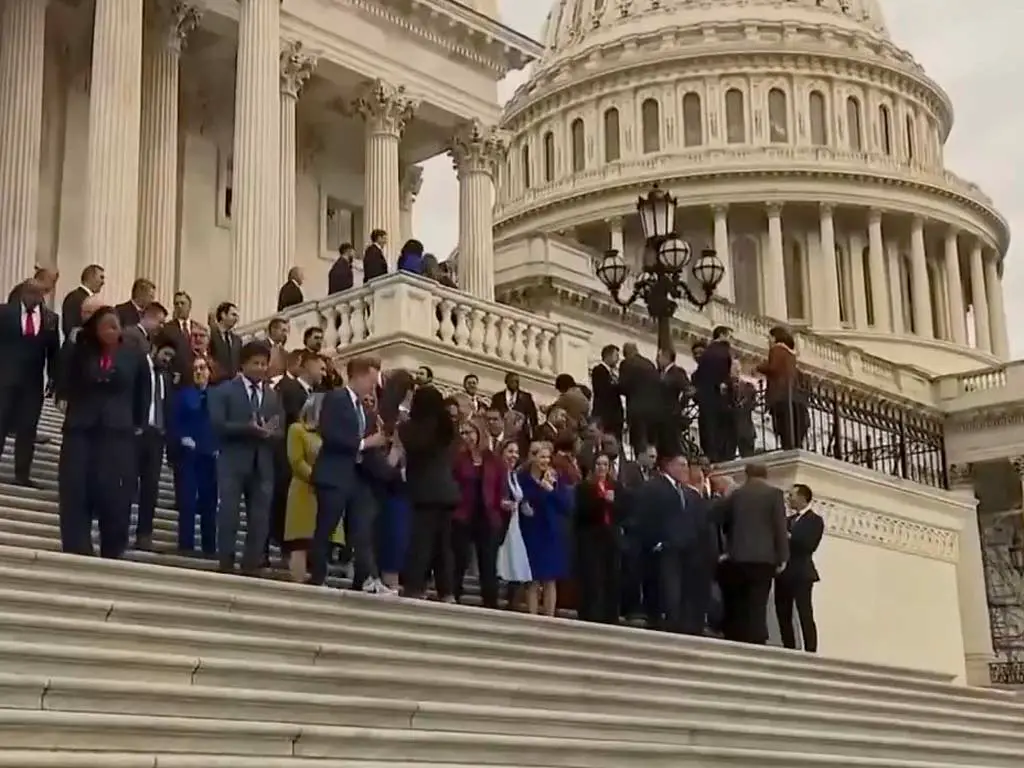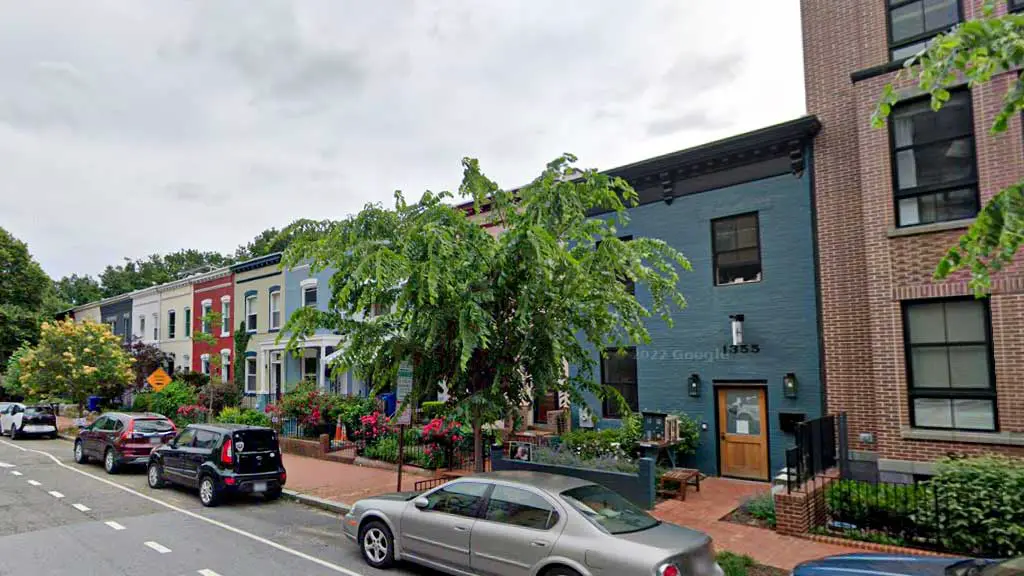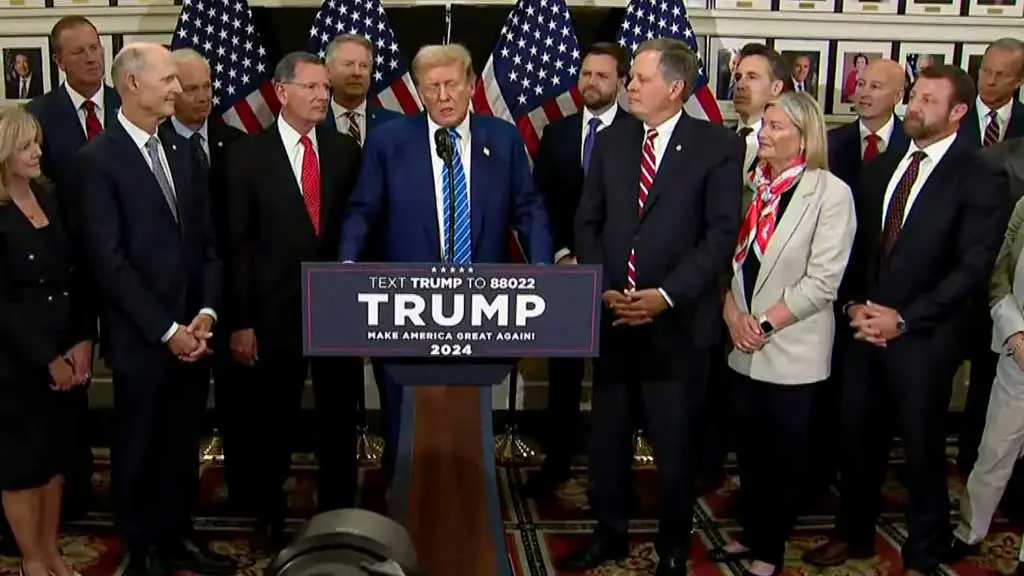Living as a Republican in Washington, D.C. offers a unique perspective within the vivid tapestry of the nation’s capital.
Despite the city’s predominantly Democratic leanings, Republicans contribute to its diverse political landscape through advocacy, representation, and community engagement.
In neighborhoods like Capitol Hill and Georgetown, among others, Republicans find pockets of community where they can share common values and participate in local governance.
From serving on advisory boards to engaging in grassroots campaigns, Republicans play integral roles in shaping policies that reflect conservative principles such as fiscal responsibility and limited government intervention.
Their presence enriches political discourse, fosters bipartisan collaboration, and ensures that a spectrum of viewpoints contributes to the city’s dynamic social and cultural fabric.
Washington, D.C. thus serves not only as a center of national politics but also as a home where Republicans contribute to the city’s evolution and governance.

Republicans Living in Washington DC
Living in Washington, D.C. as a Republican can present a unique experience due to the city’s predominantly Democratic leanings.
While the political landscape is diverse and dynamic, Republicans in D.C. often find themselves in a minority position compared to the surrounding areas and the city itself, where Democratic voters and politicians are more prevalent.
For Republicans living in Washington, D.C., there are various communities and neighborhoods where like-minded individuals may gather, share common interests, and engage in political discussions.
These communities often provide support networks and opportunities for networking within the broader political scene.
Socially and culturally, D.C. offers a vivid environment with museums, historical landmarks, and a diverse culinary scene that caters to a wide range of tastes.
The city’s rich history and role as the nation’s capital also mean that residents, regardless of political affiliation, have access to unique opportunities for civic engagement and cultural enrichment.
Navigating daily life as a Republican in Washington, D.C. may involve finding a balance between personal political views and the predominantly liberal atmosphere of the city.
Many residents, regardless of political affiliation, appreciate the city’s intellectual stimulation, career opportunities, and access to national institutions.
Neighborhoods in DC Where Republicans Reside
In Washington, D.C., neighborhoods where Republicans reside tend to be more dispersed compared to areas with higher concentrations of Democratic residents.
While the city as a whole leans heavily Democratic, there are pockets where Republicans and individuals with conservative leanings may find community and a sense of belonging.
Capitol Hill

Beyond being the seat of U.S. government, Capitol Hill is a neighborhood with a mix of historic row houses, townhomes, and newer developments.
It attracts a diverse population that includes congressional staffers, lobbyists, and professionals in various fields related to government and policy.
Some Republicans who work on Capitol Hill or in associated industries choose to live here due to its proximity to their workplaces and rich community life.
The neighborhood offers easy access to iconic landmarks like the U.S. Capitol, Supreme Court, and Library of Congress, making it a desirable location for politically engaged residents from all backgrounds.
Georgetown
Known for its cobblestone streets, historic architecture, and upscale boutiques and restaurants, Georgetown is one of Washington, D.C.’s most prestigious neighborhoods.
It attracts a diverse mix of residents, including affluent professionals, diplomats, and some Republicans who appreciate its central location along the Potomac River.
The neighborhood’s charm and proximity to Georgetown University add to its appeal, creating a blend of academic, cultural, and residential life that appeals to a wide range of political perspectives.
Cathedral Heights
Located near the National Cathedral and American University, Cathedral Heights offers a quieter residential atmosphere within the city.
The neighborhood features tree-lined streets, single-family homes, and apartment buildings that appeal to families, professionals, and retirees alike.
Some Republicans are drawn to Cathedral Heights for its peaceful environment, community-centered vibe, and proximity to green spaces like Glover-Archbold Park.
Residents here enjoy a suburban feel while still being close to downtown amenities and cultural institutions.
Penn Quarter
Located in downtown Washington, D.C., Penn Quarter is a big neighborhood known for its arts and entertainment scene.
It’s home to the Smithsonian American Art Museum, National Portrait Gallery, and numerous theaters and galleries.
The area’s revitalization in recent years has attracted a diverse mix of residents, including young professionals, artists, and some Republicans who appreciate its central location and cultural amenities.
Penn Quarter offers a lively urban environment with restaurants, bars, and shops, making it a desirable neighborhood for those seeking a dynamic city lifestyle.
Chevy Chase
Bordering Maryland, Chevy Chase is a suburban neighborhood within Washington, D.C., known for its leafy streets, spacious homes, and family-friendly atmosphere.
The area appeals to residents seeking a quieter residential environment while still being within city limits.
Some Republicans are attracted to Chevy Chase for its excellent schools, parks, and community-oriented feel.
The neighborhood offers a mix of single-family homes, townhouses, and apartments, providing options for residents at different stages of life who value a suburban lifestyle with convenient access to urban amenities.
Foxhall Village
Situated near Georgetown and the Potomac River, Foxhall Village is a residential neighborhood known for its quiet streets and community-oriented vibe.
The area features a mix of historic homes, townhouses, and newer developments, appealing to residents seeking a suburban feel within the city.
Some Republicans are drawn to Foxhall Village for its proximity to nature, including parks and trails along the Potomac River.
The neighborhood’s sense of community and slower pace of life offer a peaceful retreat from the hustle and bustle of downtown, making it a desirable location for families and professionals alike.
How Republican Party Influences Local Politics

In Washington, D.C., the influence of the Republican Party on local politics can be nuanced given the city’s predominantly Democratic voter base.
Despite this, Republicans play significant roles in shaping local policies, advocating for specific issues, and contributing to political discourse in various ways.
Representation and Advocacy
Despite being a minority party in D.C., Republicans play crucial roles in representing conservative viewpoints and advocating for specific policy priorities.
Elected officials and party members often focus on issues such as fiscal responsibility, limited government intervention, and promoting business-friendly policies.
They serve as vocal advocates for taxpayers and businesses, seeking to balance the city’s budget and ensure efficient use of public resources.
Participation in Advisory Boards and Committees
Republicans engage actively in local governance through participation in advisory boards, commissions, and community organizations.
These roles allow them to influence policy decisions and provide expertise on issues such as education reform, transportation infrastructure, and public safety.
By serving on advisory bodies, Republicans contribute diverse perspectives that help shape municipal policies and initiatives.
Campaigns and Voter Outreach
During elections, Republican candidates and activists conduct grassroots campaigns and voter outreach efforts to connect with constituents.
Despite electoral challenges posed by the city’s Democratic majority, these efforts are essential for raising awareness of conservative platforms, mobilizing supporters, and engaging voters on local issues.
Republicans in D.C. focus on building coalitions, emphasizing their commitment to fiscal conservatism, individual liberties, and effective governance.
Policy Debates and Legislation
Republican members of the D.C. Council and other local legislative bodies actively participate in debates on proposed legislation.
They offer alternative viewpoints, propose amendments, and advocate for policies aligned with conservative principles.
Issues such as school choice, tax reform, and public safety initiatives are frequently championed by Republicans, who seek to address the diverse needs of residents across all wards of the city.
Collaboration Across Party Lines
In a city known for its political diversity, Republicans collaborate with Democratic colleagues and independents to find common ground on shared priorities.
Bipartisan cooperation is essential for advancing legislation, addressing constituent concerns, and ensuring effective governance.
By working across party lines, Republicans contribute to constructive dialogue, foster consensus-building, and promote policies that benefit the broader community.
Key Issues on the Republican Party of DC’s Platform
The Republican Party in Washington, D.C. often emphasizes a platform that aligns with broader conservative principles while addressing specific issues pertinent to the city and its residents.
Key issues typically highlighted on the Republican Party of D.C.’s platform include:
Fiscal Responsibility

Republicans in D.C. prioritize fiscal discipline, advocating for balanced budgets, lower taxes, and reducing government waste.
They aim to promote economic growth by creating a business-friendly environment that attracts investment and stimulates job creation.
Emphasizing efficient use of taxpayer dollars, they seek to minimize unnecessary spending and support policies that ensure long-term financial stability for the city.
Education Reform
Republicans support reforms that empower parents with more choices in their children’s education, such as school vouchers, charter schools, and homeschooling options.
They advocate for accountability in education, promoting measures that improve student outcomes and teacher quality.
By encouraging competition and innovation in the education sector, Republicans seek to provide all students with access to quality education regardless of their background or zip code.
Public Safety
Republicans prioritize law and order, supporting law enforcement agencies and policies that enhance public safety.
They advocate for community policing strategies, crime prevention programs, and stricter penalties for violent crimes.
By addressing issues like gang violence and drug trafficking, Republicans aim to create safer neighborhoods where residents can live without fear of crime.
Limited Government
Republicans believe in limiting the size and scope of government, advocating for reduced regulation and individual liberties.
They oppose government overreach and support policies that empower individuals and businesses to make their own decisions.
By promoting free-market principles and entrepreneurship, Republicans seek to foster economic growth and innovation while preserving personal freedoms and privacy rights.
Healthcare Reform
Republicans advocate for market-based reforms to improve healthcare affordability and accessibility.
They support initiatives such as health savings accounts (HSAs), interstate healthcare competition, and tort reform to reduce medical costs.
By empowering patients with more choices and control over their healthcare decisions, Republicans aim to create a more efficient and patient-centered healthcare system.
Housing Affordability
Republicans address housing affordability challenges by promoting policies that encourage private-sector solutions and reduce regulatory barriers to housing development.
They support zoning reforms, streamlined permitting processes, and incentives for affordable housing construction.
By expanding housing options and promoting homeownership, Republicans aim to make D.C. a more affordable and inclusive city for residents of all income levels.
Transportation and Infrastructure
Republicans prioritize infrastructure investments that enhance economic growth and improve quality of life.
They support projects that address critical transportation needs, such as road repairs, bridge maintenance, and public transit upgrades.
By advocating for efficient use of transportation funding and prioritizing infrastructure projects based on economic benefits, Republicans aim to alleviate traffic congestion and improve mobility in D.C.
Energy Policy
Republicans advocate for energy independence and responsible energy exploration, including support for domestic oil and gas production.
They promote policies that encourage innovation in clean energy technologies while ensuring energy affordability for consumers.
By reducing regulatory burdens on energy producers and supporting diverse energy sources, Republicans aim to strengthen national security and promote economic growth in the energy sector.
National Defense
Republicans prioritize national defense and military readiness, supporting adequate funding for the armed forces and veterans’ benefits.
They advocate for policies that strengthen U.S. alliances and promote a robust defense posture to protect American interests abroad.
By honoring veterans’ service and ensuring military readiness, Republicans aim to maintain peace through strength and defend the nation against emerging threats.
Protecting Constitutional Rights
Republicans uphold constitutional rights, including the Second Amendment right to bear arms, freedom of speech, and religious liberties.
They oppose efforts to infringe on individual freedoms and support measures that protect citizens’ rights from government overreach.
By defending constitutional principles and promoting a judiciary that interprets laws based on the original intent of the Constitution, Republicans aim to safeguard fundamental rights and liberties for all Americans.
Frequently Asked Question
Are there neighborhoods in Washington, D.C. where Republicans tend to live?
Yes, neighborhoods like Capitol Hill, Georgetown, Cathedral Heights, Penn Quarter, and Chevy Chase attract some Republicans due to their diverse communities and proximity to cultural and political institutions.
How do Republicans in D.C. engage in local politics despite being a minority?
Republicans participate in advisory boards, grassroots campaigns, and advocacy efforts to influence policies on issues such as fiscal responsibility, education reform, and public safety.
What are key issues on the Republican Party of D.C.’s platform?
Key issues include fiscal responsibility, education reform (like school choice), public safety, limited government, healthcare reform, housing affordability, infrastructure investment, energy policy, national defense, and protecting constitutional rights.
How do Republicans in D.C. collaborate with Democrats on local issues?
Republicans work across party lines to find common ground on shared priorities, contributing diverse perspectives to debates on legislation and policy initiatives.
What cultural and social opportunities are available to Republicans living in D.C.?
Washington, D.C. offers a vivid cultural scene with museums, historical landmarks, and diverse dining options.
Republicans engage in civic activities, cultural events, and networking opportunities within their communities and across the city.
Conclusion
Living as a Republican in Washington, D.C. offers a dynamic blend of challenges and opportunities within the nation’s political epicenter.
Despite the city’s predominantly Democratic leanings, Republicans contribute significantly to local governance through advocacy, representation, and community engagement.
From advocating for fiscal responsibility and limited government to promoting education reform and public safety initiatives, Republicans in D.C. play crucial roles in shaping policies that reflect conservative principles.
They navigate a landscape rich in cultural and intellectual pursuits, leveraging neighborhoods like Capitol Hill and Georgetown as hubs for political discourse and civic involvement.
Through collaboration across party lines and active participation in local institutions, Republicans enhance the city’s political diversity and ensure that a spectrum of viewpoints contributes to its evolving social and economic fabric.
Ultimately, Washington, D.C. serves not only as a political stage but also as a vivid home where Republicans actively engage in shaping the city’s future.




Allison Brice